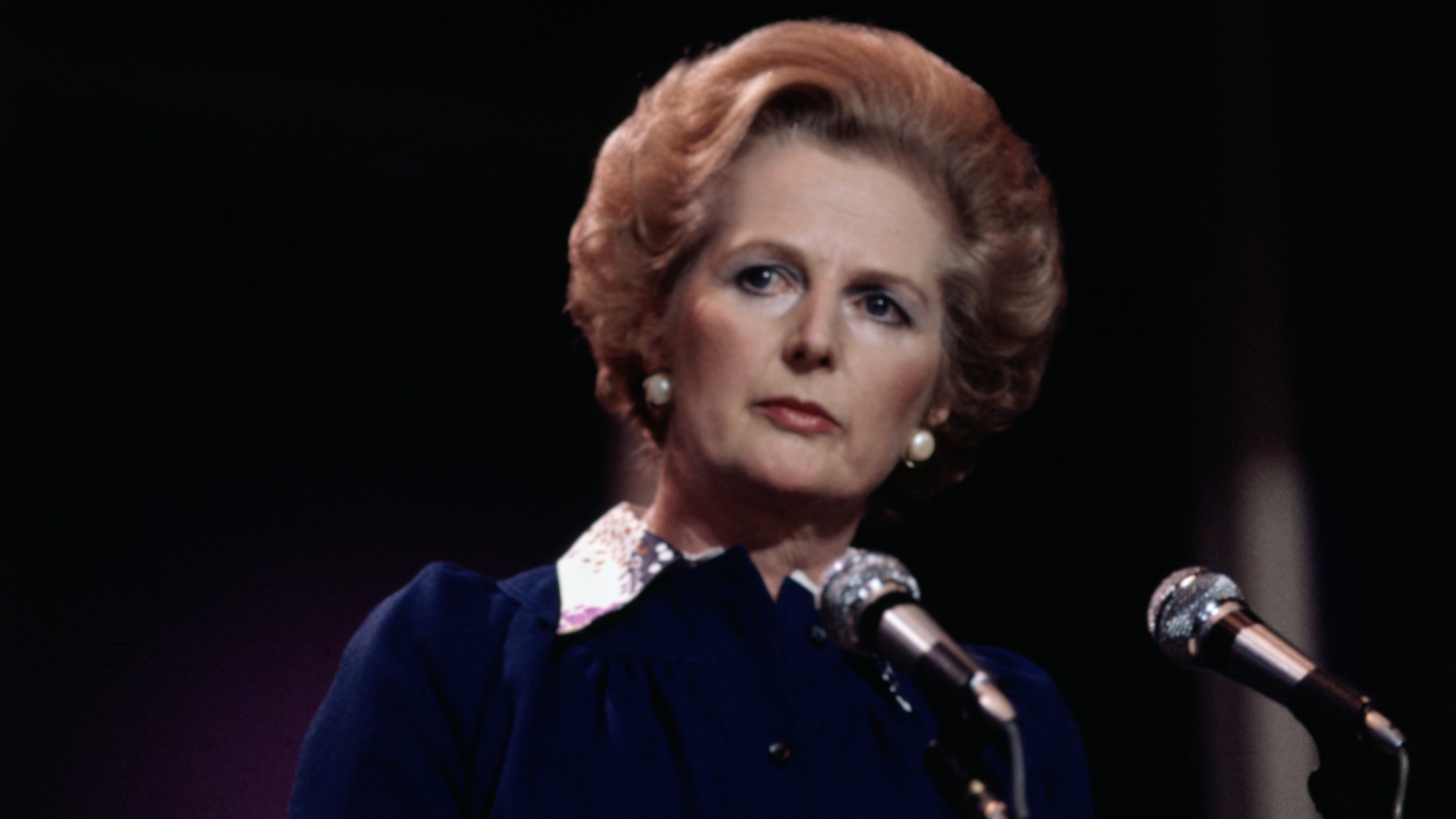Thatcherism at 50: is Iron Lady's reputation not for turning?
The influence of Britain's first female prime minister is still felt half a century after she became Conservative leader

Margaret Thatcher is "still adored and revered" by the Conservative Party, "grudgingly respected" by Labour prime ministers past and present, and "despised and reviled on the left and in many working class communities", said Sky News' Jon Craig.
Fifty years ago this week Thatcher became the Conservative leader and her central ideology of "rolling back the frontiers of the state" continues to have a profound influence on British politics.
'Lessons for Badenoch'
Kemi Badenoch has described Thatcher as her "political heroine", while Keir Starmer invoked her recently when he vowed to cut "the thickets of red tape" in the government's pursuit of economic growth, claiming it was "our equivalent" of the Thatcher government's deregulation in the 1980s.
The Week
Escape your echo chamber. Get the facts behind the news, plus analysis from multiple perspectives.

Sign up for The Week's Free Newsletters
From our morning news briefing to a weekly Good News Newsletter, get the best of The Week delivered directly to your inbox.
From our morning news briefing to a weekly Good News Newsletter, get the best of The Week delivered directly to your inbox.
But while some see some parallels between 1975 and 2025 – such as another new female Tory leader facing a Labour prime minister – others would argue the similarities "end there". On the evidence so far, "critics would say Kemi Badenoch is no Margaret Thatcher and Keir Starmer is no Harold Wilson".
Thatcher "still has lessons for Badenoch", said Charles Moore in The Telegraph. If Badenoch wants to succeed, she must "cultivate the talents of her best MPs", as Thatcher did with figures like Geoffrey Howe and Nigel Lawson. And rather than trying to "out-shout Reform", Badenoch should "develop her party's thoughts more carefully and systematically". "Time spent in reconnaissance is never wasted" was a favourite phrase of Thatcher's. Voters "might come to admire a party which had put in the work in opposition rather than making the most noise".
'The unfortunate lived present'
This 50-year marker "comes at a melancholy time" when Thatcher's actions are "rebounding on the country with a vengeance", said Polly Toynbee in The Guardian. "Polls show the policies she was most famed for are those most voters now bitterly regret." Thatcher's economic reforms led to soaring wealth at the top while "inequality has stayed at that high level ever since".
Her privatisations resulted in monopolies and financial failures "on an epic scale", which took decades to acknowledge. Conservative think tanks continue to romanticise her "philosophy and vision" while ignoring the long-term economic damage still shaping the present. Thatcher "is not history and certainly not entertainment. She is the unfortunate lived present."
A free daily email with the biggest news stories of the day – and the best features from TheWeek.com
Sorcha Bradley is a writer at The Week and a regular on “The Week Unwrapped” podcast. She worked at The Week magazine for a year and a half before taking up her current role with the digital team, where she mostly covers UK current affairs and politics. Before joining The Week, Sorcha worked at slow-news start-up Tortoise Media. She has also written for Sky News, The Sunday Times, the London Evening Standard and Grazia magazine, among other publications. She has a master’s in newspaper journalism from City, University of London, where she specialised in political journalism.
-
 How drones have detected a deadly threat to Arctic whales
How drones have detected a deadly threat to Arctic whalesUnder the radar Monitoring the sea in the air
-
 A running list of the US government figures Donald Trump has pardoned
A running list of the US government figures Donald Trump has pardonedin depth Clearing the slate for his favorite elected officials
-
 Ski town strikers fight rising cost of living
Ski town strikers fight rising cost of livingThe Explainer Telluride is the latest ski resort experiencing an instructor strike
-
 Trump fears impeachment if GOP loses midterms
Trump fears impeachment if GOP loses midtermsSpeed Read ‘You got to win the midterms,’ the president said
-
 The Mint’s 250th anniversary coins face a whitewashing controversy
The Mint’s 250th anniversary coins face a whitewashing controversyThe Explainer The designs omitted several notable moments for civil rights and women’s rights
-
 Alaa Abd el-Fattah: should Egyptian dissident be stripped of UK citizenship?
Alaa Abd el-Fattah: should Egyptian dissident be stripped of UK citizenship?Today's Big Question Resurfaced social media posts appear to show the democracy activist calling for the killing of Zionists and police
-
 Is Keir Starmer being hoodwinked by China?
Is Keir Starmer being hoodwinked by China?Today's Big Question PM’s attempt to separate politics and security from trade and business is ‘naïve’
-
 The MAGA civil war takes center stage at the Turning Point USA conference
The MAGA civil war takes center stage at the Turning Point USA conferenceIN THE SPOTLIGHT ‘Americafest 2025’ was a who’s who of right-wing heavyweights eager to settle scores and lay claim to the future of MAGA
-
 Trump wants to build out AI with a new ‘Tech Force’
Trump wants to build out AI with a new ‘Tech Force’The Explainer The administration is looking to add roughly 1,000 jobs
-
 How cryptocurrency is changing politics
How cryptocurrency is changing politicsIn The Spotlight From electoral campaigns to government investments, crypto is everywhere and looks like it’s here to stay
-
 ‘Consistency at the ballot box isn’t nearly as meaningful to many voters here’
‘Consistency at the ballot box isn’t nearly as meaningful to many voters here’Instant Opinion Opinion, comment and editorials of the day